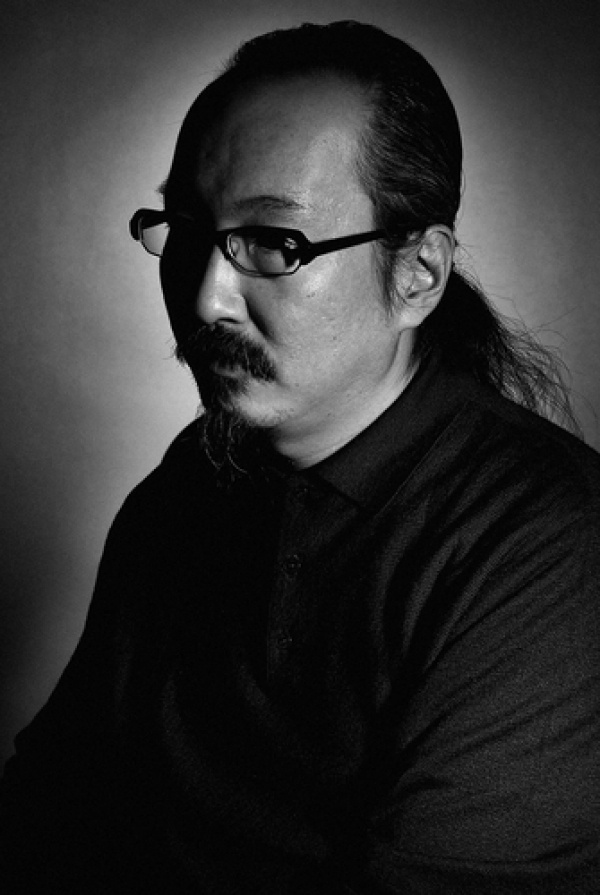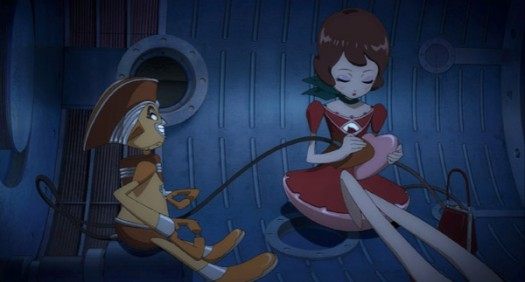Kon Passing Leaves Giant Hole In Anime World
Yesterday the world lost truly one of the greatest animation directors of all time. Satoshi Kon, whose work included Perfect Blue, Paprika and Paranoia Agent, passed away at the age of 46 after a short battle with pancreatic cancer.
Satoshi Kon got his start working with Akira creator Katsuhiro Otomo's manga World Apartment Horror, and would later serve as an animator for Otomo's Roujin Z. His first big break came when he wrote the "Magnetic Rose" section of the 1995 film Memories. When finally given the chance to direct his own feature Kon decided to direct an adaptation of Yoshikazu Takeuchi's novel Perfect Blue, about a member of a J-POP group that decides to start an acting career. Almost overnight he became a household name in Japan, and his work started gaining buzz all over the world. Perfect Blue would go on to win a number of awards acros the globe.
Perfect Blue
Three years later Satoshi Kon would direct Millennium Actress, a film that followed the life of an actress whose story blended in her truth with the works of film she did. Millennium Actress would go on to receive universal acclaim, winning Best Animation Film and Fantasia Ground-Breaker at the 2001 Fantasia Film Festival and the Grand Prize in the Japan Agency of Cultural Affairs Media Arts Festival (tying with Hayao Miyazaki's Spirited Away). Kon would next write and direct Tokyo Godfathers, the story of three homeless people who find an abandoned baby on Christmas Eve.
Millennium Actress
Kon would take his skills to television with Paranoia Agent, an anime that followed the lives of numerous people connected to an incident involving a boy with a golden bat. Its visual style and storytelling was -- and still is -- unmatched, thanks in part to its psychological nature and stunning animation. The series would air all over the world, including in America on [adult swim]. Though it didn't fare well ratings-wise in the States it still gathered a large following in the anime community.
2006 would be the year when Satoshi Kon would direct what many people consider his magnum opus: Paprika, based on Yasutaka Tsutsui's 1993 novel. The film followed a psychologist who used a machine to travel into patients' dreams to help cure them, but winds up becoming dangerous after three prototypes are stolen and used to create chaos in both reality and the dream world. Paprika would go on to pick up the Best Feature Length Theatrical Anime Award at the sixth annual Tokyo Anime Awards, and recent news has shown that director Wolfgang Petersen is working on a live-action adaptation.
Satoshi Kon was currently working on his next film Yume-Miru Kikai, when he got the devastating news from his doctor on May 18. "My wife and I received the following prognosis from a cardiologist at the Musashino Red Cross Hospital: 'The pancreatic cancer is terminal and has metastasized to the bone. You have at most a half year left'," said Kon in a posthumous blog post published today. "When I conveyed my concerns for Yume-Muru Kikai to Mr. Maruyama, he said, 'It's fine. Don't worry, we'll do whatever it takes.' I cried. I cried aloud."
Yume-Miru Kikai
Satoshi Kon's wife Kyōko published a statement regarding her husband: "Satoshi Kon passed away due to pancreatic cancer on August 24 at 6:20 a.m. He was 46. His funeral service will be held for family members only. We are respectfully and deeply grateful for your kindness during his lifetime." A similar statement was released by Madhouse, the studio that animated most of his work.
It will be years before we see another anime director like Satoshi Kon. His storytelling style was like that of Hitchcock's, with thickening plot lines and mind-numbing visuals that were on par with Kubrick. I was first introduced to Kon through Millennium Actress, a film whose storytelling techniques are still unrivaled today. How he easily weaved this actress's life with the films that she made were truly awe-inspiring, and it was something that not even Studio Ghibli could've even accomplished; and while Miyazaki is a master of playing with one's mind, Kon was a master of screwing with it (especially in Perfect Blue and Paranoia Agent). Yet underneath all the confusion and disturbing elements Kon was always able to sneak in a slice of humor, similar in the veins of Terry Gilliam. I am sad that I will never be able to shake Satoshi Kon's hand to thank him for his hard work in the anime industry, but I hope he's up there knowing that he inspired millions of people throughout the world.
I don't think there is a more fitting way to end this tribute than with the final words of Satoshi Kon himself: "With feelings of gratitude for all that is good in this world, I put down my pen. Well, I'll be leaving now."










